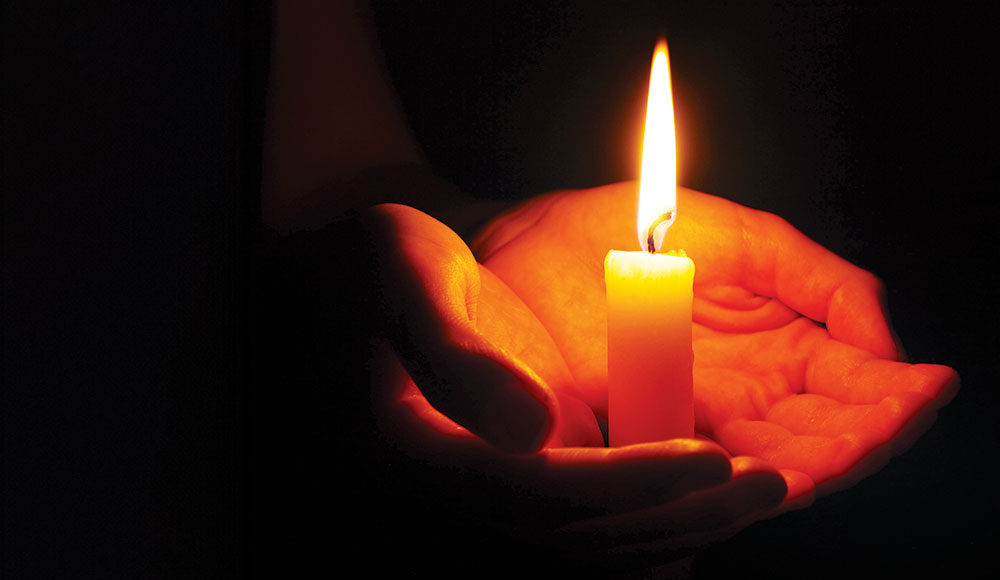In 2005, my journey into the profound realm of death midwifery began unexpectedly yet inevitably, as I stepped into the role for one of my dearest friends, Susan. At 62, battling leukemia, Susan entrusted me not just with her final days, but with the sacred task of guiding her and her loved ones through a transition marked by grace, dignity and healing.
My path to becoming a death midwife was paved long before Susan’s illness. Rooted in a deep-seated belief in conscious dying, nurtured during a transformative journey to Peru in 1986, I found myself drawing on unseen reserves of empathy and intuition. Little did I know those lessons learned amid ancient landscapes would prepare me for the sacred duty of midwifing souls through their final passage.
When Susan made the courageous decision to forgo further treatments, opting instead for comfort and closure, our journey together took on a new dimension. It wasn’t just about managing symptoms or logistics—it was about crafting a sacred space where Susan could find peace and her loved ones could bid her farewell with love and reverence.
One of the defining moments came when I suggested a gathering of Susan’s closest friends, her beloved “sisters,” to share memories and say their goodbyes. Despite initial logistical concerns, Susan’s unwavering spirit and my insistence on the importance of the moment prevailed. We transformed her dining room into a sanctuary of love, adorned with her favorite flowers and cherished mementos, ensuring every detail reflected the beauty of her life.
Each woman arrived, carrying tokens of affection and heartfelt messages, bearing witness to Susan’s impact on their lives. As tears mingled with laughter and sorrow, it became clear that this gathering was not just a farewell, but a healing ritual—an affirmation of love and a celebration of a life well-lived.
In those final days, as Susan’s strength waned and her body sought solace in sleep, I became her companion in the quiet moments, while her husband tended to other matters. The soft music playlist I created filled the room, enveloping us in a cocoon of tranquility, while I whispered words of comfort and stroked her brow, assuring her of the love that surrounded her.
One profound lesson I carried from my training and experiences was the understanding that hearing is the last sense to go. Despite her unconscious state, I knew Susan could hear every word spoken, feel every touch bestowed upon her fragile form. It underscored the importance of creating an environment steeped in love and serenity—a stark contrast to the clinical detachment often associated with dying.
Before the inevitable moment arrived, and Susan drew her final breath, I made a deliberate choice to bathe her and pass in the light. Drawing open the curtains, I invited the warmth of the sun to fill the room, casting away shadows and embracing her departure with gentle radiance. It was a gesture not just for Susan but for her husband and loved ones—a testament to honoring her journey with dignity and grace.
As I cleansed her body and dressed her in her favorite attire, I felt a profound kinship with midwives throughout history, gently ushering new life into the world. This time, however, it was about honoring life’s culmination—a final act of love and respect for the vessel that had housed a vibrant soul.
In the aftermath, as I reflected on Susan’s journey and my role within it, I realized the profound impact a death midwife can have. Beyond the practicalities of care, our role is to transform the experience of dying from one of fear and loneliness to one of solace and connection. It’s about ensuring that each person’s final moments are imbued with the essence of their life—a celebration rather than a mournful farewell.
What we want in our last breath, I’ve come to understand, is a sense of peace and fulfillment—a knowing that we are loved and that our life has mattered. As death midwives, we have the privilege of creating that environment, of holding space for both the departing soul and those left behind. It’s a responsibility that requires empathy, intuition and a deep reverence for the sacredness of life’s closing chapters.
The lessons learned from Susan’s journey continue to guide me as I accompany others on their final pilgrimage. Each experience reaffirms the importance of presence, compassion and the healing power of love. It’s not just about easing physical discomfort but about nurturing the spirit, offering solace, and facilitating a transition that is as gentle and meaningful as possible.
As I look ahead, I carry with me the wisdom gained from Susan’s passage—a reminder that death, like life, is a natural part of our journey. Through our work as death midwives, we have the profound opportunity to reshape how society views and experiences death—not as an end, but as a sacred and transformative passage filled with love, honor and the enduring legacy of lives well-lived.
Shelley Whizin is a transformational life coach who guides families through a loved one’s final passage with a commitment to honor, dignity and healing. Contact her at sh*****@sh***********.com or 818-414-5111.













So powerful and beautiful.